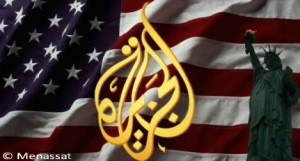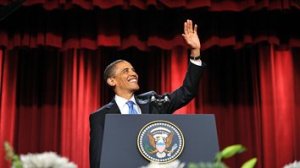
The sounds and images of the Jubilations in Cairo’s Tahrir Square filled my heart with joy. I still cannot believe it is happening in my lifetime. Finally, Arab dictators are no longer in power and Arab peoples are more defiant than ever.
I’ve always been a proud Arab, even though my Arabism was flushed down the toilet throughout the last 30 years of my life due to the series of failure that hovered over the region up until the Tunisian revolution.
What happened in Tunisia revived hope in my heart that my fellow Arabs are now strong, defiant and willing to oust their dictators no matter what force they need to face.
It is about time! Throughout my 30 years of life, Arab dictators were mostly the same. They gathered at the useless Arab summits, “discussing” hot topics affecting the Arab “Homeland” and congratulating each other for the “successes” they had achieved throughout their decades-long presidencies.
All of that while Arab peoples were hungry, unemployed and oppressed.
This time, however, things are no longer the same. A joke spread by Arab tweeps these days says that the new Arab summit, which will be held in Baghdad, will be an introduction summit where new leaders will introduce themselves for the first time!
For me, it’s not a joke. It’s real! It’s happening! And it’s happening in Baghdad where the last summit it hosted was in 1990 before Saddam invaded Kuwait.
As I was watching the flock of the wonderful news coming out from Tunisia and Egypt via Al Jazeera and Twitter, I couldn’t but wonder if I and my fellow Iraqis would have revolted against Saddam had he not been ousted by a bloody war.
Today, Tunisia and Egypt paved the road for a real democratic Arab world. No more silence. No more fear. Arabs are determined to ending the oppression eras of their totalitarian regimes. The road will be messy and maybe bloody but the reign of change has arrived and it won’t go back to where it was.
Long live Tunisia! Long live Egypt! Long live the quest for freedom and democracy in the Arab world!









